In honor of the celebration of Yom Ha-Aztma’ut this year, not simple for anyone but all the more impossible if you’re from one of the devastated communities of the Gaza envelope, an Israeli Reggae band, Hatikvah-6, wrote for Kibbutz Be’eri a very touching song. It speaks about them, about people from other towns who are sharing their Dead Sea area hotel with them, what they’re all doing now, and what they do in “real life.”
Others made a video out of it, composed of images of the members of the kibbutz. When the refrain of the song says, “It’s true, everyone here looks normal, but this is a kibbutz of super-heroes,” it’s very, very true.
So we’ve taken the video and added English subtitles for our readers; you’ll find it below.
First though, two quick slices of Israeli life these days, one from Friday and one from just a few moments ago.
The front page of Makor Rishon this Friday carried a snippet of a much longer piece that ran in one of the magazine sections. It’s by Yotam Zimri, a radio personality, social media presence and writer, associated with Israel’s conservative thinkers.
The headline for the column is a play on a well known biblical phrase. Proverbs 24:17 famously reads בִּנְפֹל אוֹיִבְךָ אַל תִּשְׂמָח וּבִכָּשְׁלוֹ אַל יָגֵל לִבֶּךָ, or as Robert Alter translates it, “When your enemy falls, do not rejoice; and when he stumbles, let your heart not be gladdened.”
The headline of this column, which deals with the death of Iranian President Ebrahim Raisi—also known as the Butcher of Teheran for the many thousands he ordered killed, and hated by Israelis for his annoying hopes of destroying us—in that helicopter crash last week, reads:
When your enemy falls, do not be saddened.
And here’s the text of the brief précis that appears on the front page. We’re including it here not to endorse Zimri’s view that we actually allow ourselves some joy at Raisi’s death (though it would be hard to argue that that’s out of place), but rather, because the conclusion of this brief summary speaks volumes about what has happened to Israelis’ sense of ourselves and our capabilities since October 7:
It’s been some time since we’ve had occasion to feel genuine pleasure. An event that allows us all, perhaps with the exception of a few annoying elitists, to lean back with satisfaction and to simply enjoy the moment.
More than we were pleased about the death of Raisi, we enjoyed being on the side to which something bad had not happened.
But then came those who said, annoyingly as always, “We have nothing to be happy about, for Raisi didn’t set policy.”
Did I say it was their policies that crashed? Why, instead allowing yourselves a smile, do you insist on analyzing everything from a geo-political standpoint? Let us enjoy, just a bit ….
It’s true, though, that in every joy, there is also a bit of sadness. When people began to ask quietly, “is it possible that it was really we who did it?”, the smile on my face immediately faded.
Once, I wouldn’t have dismissed that possibility, simply for the joy and the warm feeling, but suddenly I realized that my confidence in ourselves has so dramatically declined that I whispered to myself, “we couldn’t stop the Toyotas [driven by Hamas’ butchering terrorists on October 7] along the border, what’re the chances we got to a helicopter?”
Finally, before the Be’eri piece below, another slice of Israeli life, from just a few minutes ago.
As I was typing this out, my phone suddenly started pinging with the above. My wife, I know, is in the car on her way to Tel Aviv to take care of two grandchildren this afternoon. If she’s listening to the radio, she’ll hear the sirens, as radio stations broadcast them. But if she’s got some playlist going, she might not hear them. So I call her to tell her to make sure she can hear.
“Yeah, I know. I’m stuck in massive traffic. Nothing much I can do.”
“Well, at least listen to the news so if you have to get out of the car [DG - which is what one does when shrapnel is falling from the sky, so in case the car catches fire, you’re not stuck in it], you’ll know.”
“Yup. I’m listening to the radio.”
“And do me a favor and try to dodge sh*t falling out of the sky. I’d rather the car didn’t get scratched.”
She laughed. “Very funny. Goodbye. Talk to you later. Love you.”
Welcome to the Promised Land.
MONDAY (05/27): Ariel Shenbal, a long time Netanyahu supporter, voter and advocate, and a journalist whom we haven’t covered much thus far, had a fascinating piece this weekend on his assessment of where Israel is these days, and what we need to do now. What he says may surprise you.
TUESDAY (05/28): Israel is obviously a country in which places play a critical role in national consciousness. The Kotel. The Old City. Ammunition Hill. And many others. We share a lovely column from last week’s papers that argues that we should derive great inspiration from Highway 1, the main highway that leads from Tel Aviv to Jerusalem. It’s a charming piece, but also profoundly important.
WEDNESDAY (05/29): Rotem Sella is a leading conservative Israeli thinker and the head of Sela Meir, Israel’s premier conservative press. We hear his take on the current situation, why he opposed, even as a conservative, the judicial reform, what he thinks Netanyahu ought to do, and more.
THURSDAY (05/30): Even almost eight months into this war, new stories of heroism and selflessness continue to emerge. One of Israel’s TV stations recently aired a video about a Bedouin man who saved eight Jewish men who had fled the Nova party. They meet up with him for the first time, tell what happened, and share how afraid of him they were, and how deeply indebted to him they will always feel.
FRIDAY: (05/31): Amos Yadlin, the legendary former head of IDF Intelligence, continues to be a major intellectual presence in Israel. He recently wrote a column arguing that Israel needs a new roadmap, an entirely new way of conceiving of its future. We share portions of his column here.
Now for the Beeri video. The opening frames of the video, which appears above, show this:
It says, “Kibbutz Beeri”, and then in much smaller letters at the bottom, “Founded in October 1946, as part of the ‘11 points in the Negev plan.’”
If you’re not familiar with the 11 points plan and are interested, you can Google it. In short, though, during the night of October 5–6, 1946, right after the end of Yom Kippur, the Jewish Agency set up eleven new camps / settlements / later kibbutzim to establish Jewish residence in that area before the Partition of Palestine.
Here’s a Google screenshot:
So there’s a lot of history to Beeri, and now, a lot of pain. And also, incredible resilience and courage.
Now, if you haven’t yet, enjoy the video and the resilience of truly extraordinary people.




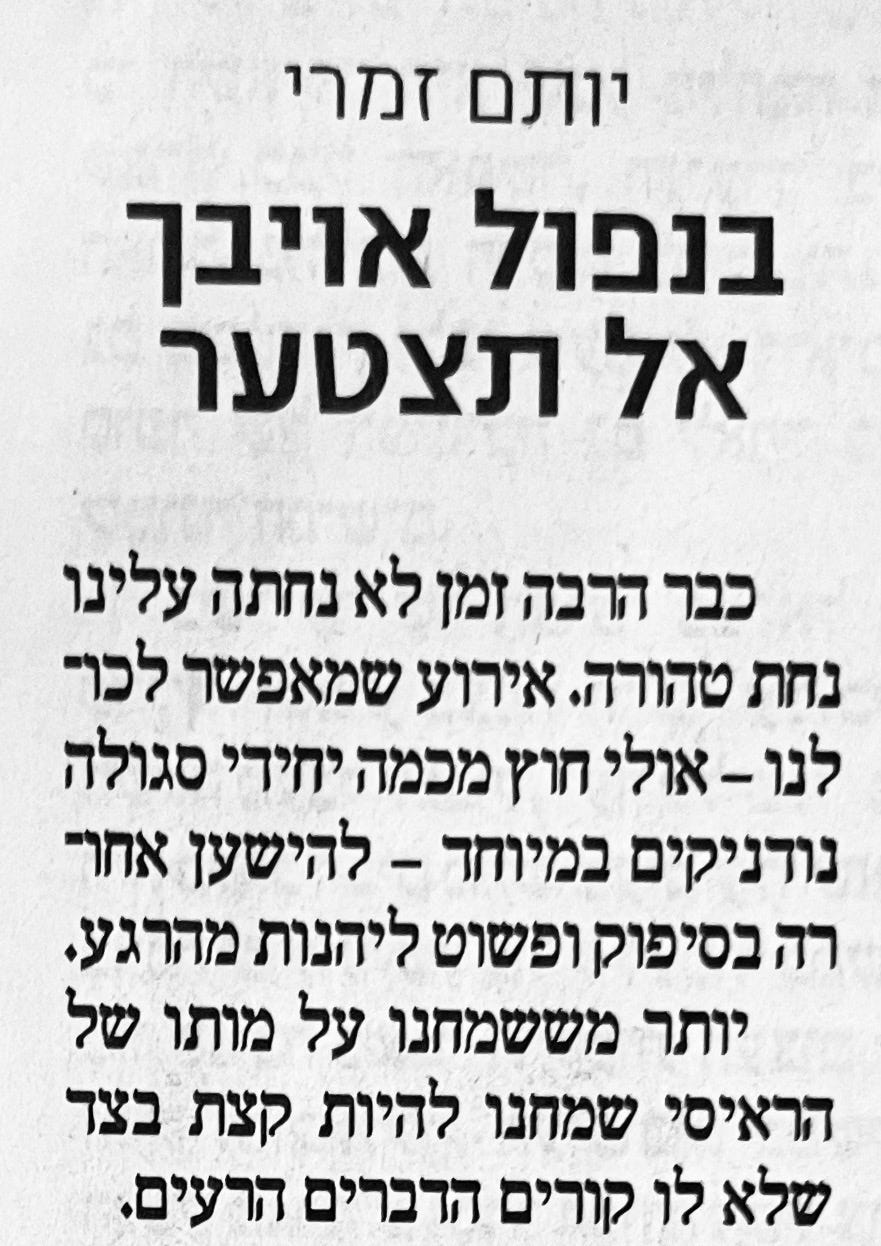

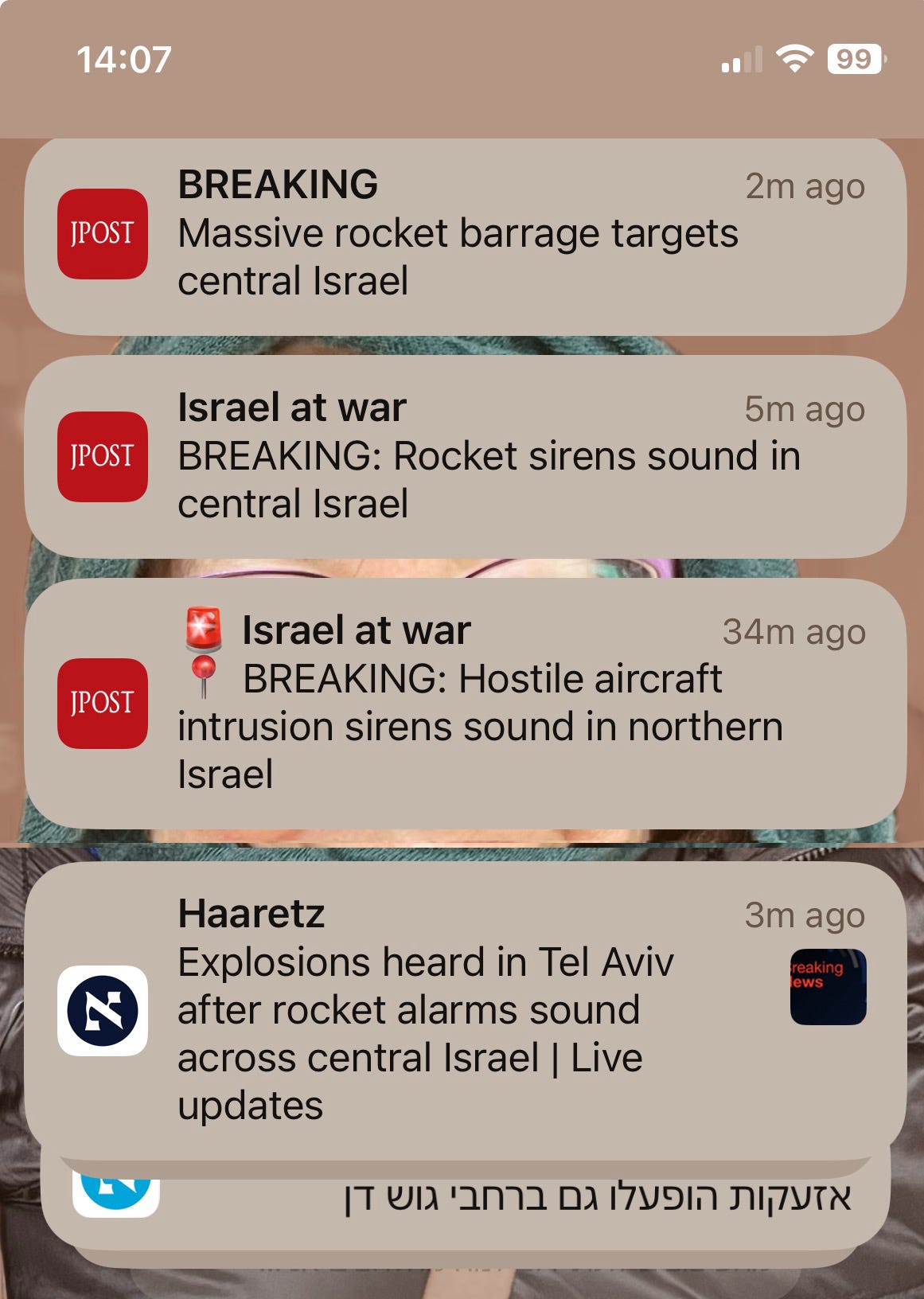


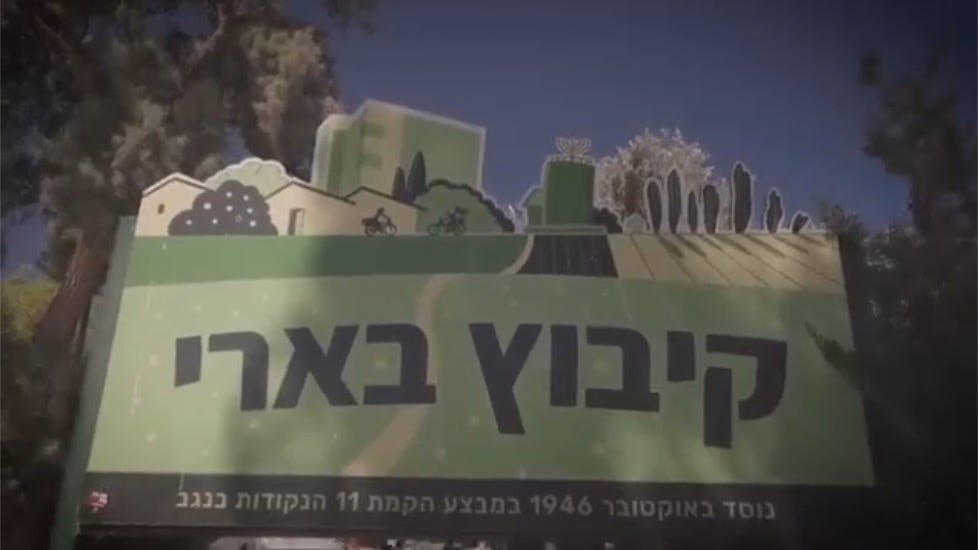
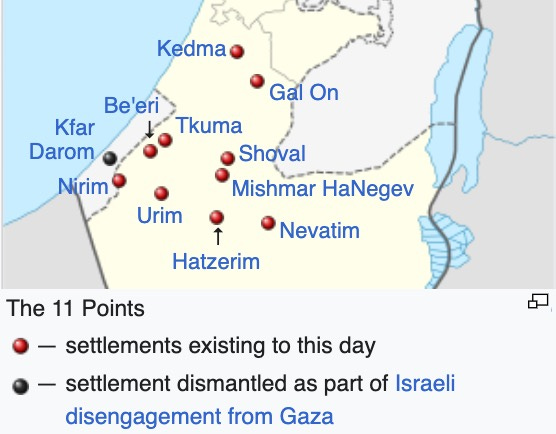
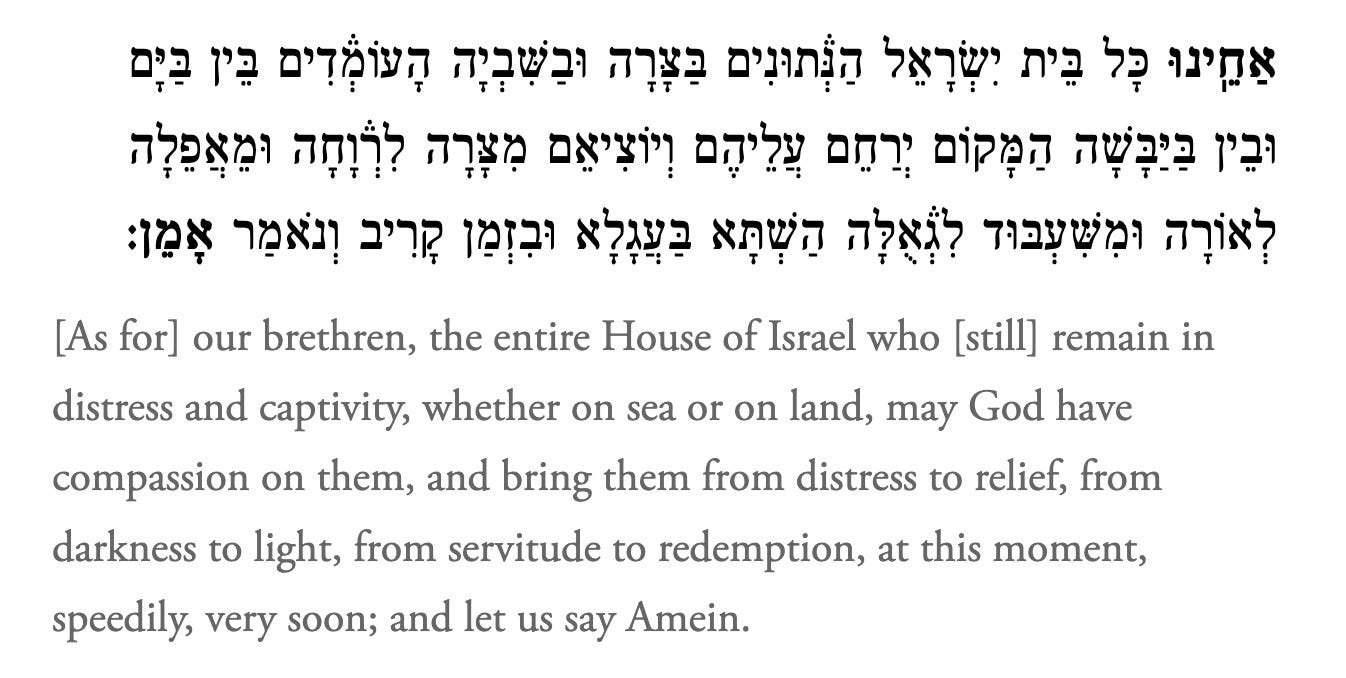













"It's true, everyone here looks normal, but this is a kibbutz of superheroes."